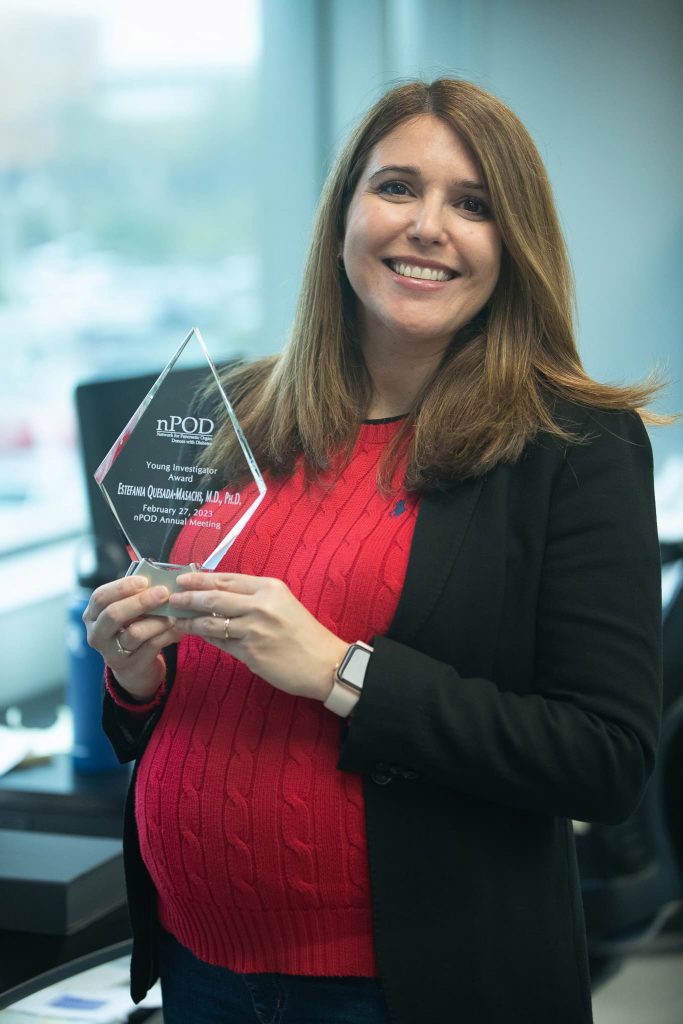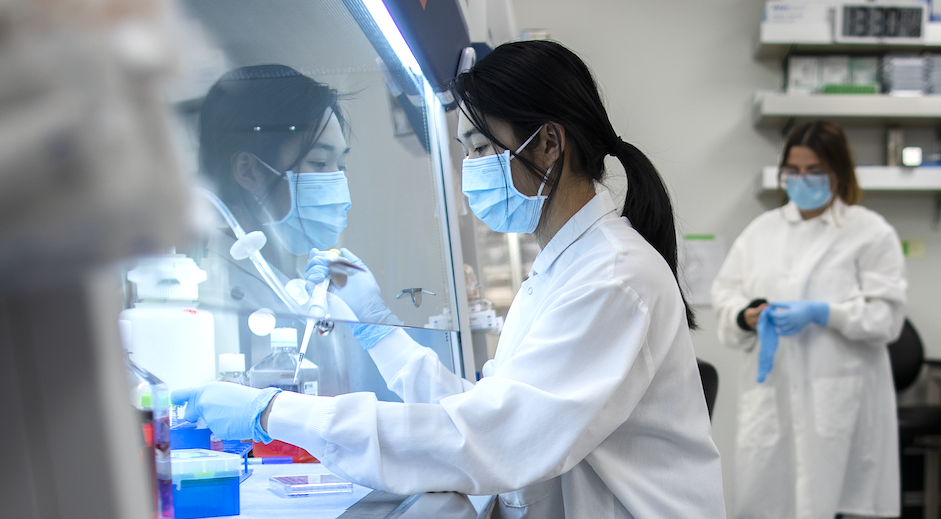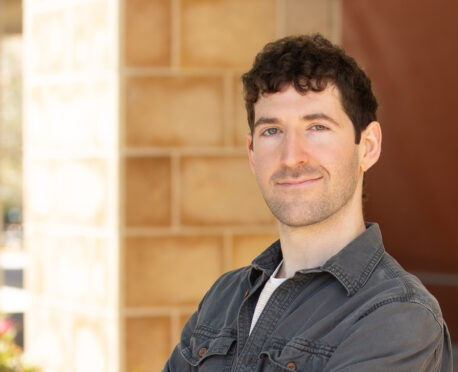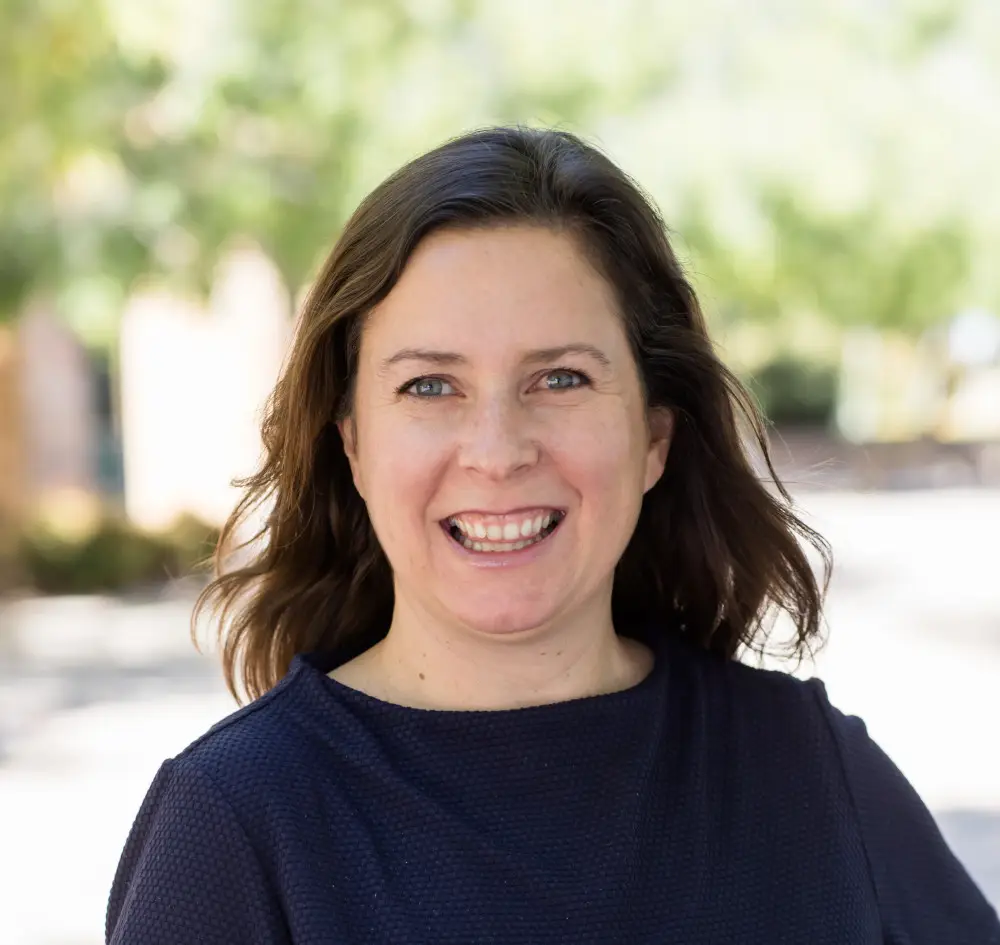LA JOLLA, CA—La Jolla Institute for Immunology (LJI) Instructor Estefania Quesada Masachs, M.D., Ph.D., has won the 2023 Young Investigator of the Year Award from the Network for Pancreatic Organ donors with Diabetes (nPOD). This prestigious award recognizes Quesada Masachs’ groundbreaking research in type 1 diabetes.
Quesada Masachs says she was “happily surprised” to receive the award from nPOD at their 2023 conference. The organization provides pancreatic tissue samples to researchers, opening the door for in-depth research into type 1 diabetes, an autoimmune disease where the body’s own immune cells target the pancreas. “This is an organization made up of scientists who really care about finding a cure for type 1 diabetes,” says Quesada Masachs.
Mark Atkinson, Ph.D., Founder and Executive Director of nPOD, says the nomination committee was unanimous in selecting Quesada Masachs for the 2023 award. “The primary mission of nPOD is to increase our understanding of how and why type 1 diabetes develops,” says Atkinson. “At nPOD, we believe Dr. Quesada Masachs’ work brings us one step closer toward that goal. We take pride in her receiving this well-deserved award.”

Type 1 diabetes affects more than 1.45 million people in the United States. Although type 1 diabetes can be managed with careful monitoring, the disease has no cure. Part of the problem in finding a cure is the lack of understanding around what actually triggers immune cells to damage the pancreas.
Quesada Masachs’ background makes her an excellent person to investigate why some people develop type 1 diabetes while others do not. She studied medicine and worked as a pediatric rheumatologist before joining LJI as a postdoctoral fellow in 2018.
Her research delves into the behavior of T cells, the immune cells that can mistakenly kill insulin-producing beta cells in the pancreas and cause type 1 diabetes. She also studies the local pancreatic environment and the behavior of insulin-producing pancreatic beta cells. “These cells have the ability to express inflammatory proteins, and this can call the attention of the surrounding immune system, contributing to their own demise,” says Quesada Masachs. She has also shed light on how potentially destructive “autoantibodies” may add to a person’s risk of developing type 1 diabetes.
This research hinges on getting access to quality samples of human pancreatic tissues. Fortunately, Quesada Masachs has established a strong collaboration with nPOD. “Good quality pancreatic tissue sections are difficult to get, but nPOD standardizes everything to get at the issue that is of the highest quality—and tissue that is absolutely suitable for research,” says Quesada Masachs.
Going forward, Quesada Masachs is eager to study pancreatic tissue samples in more detail than ever before. She’s currently working with the LJI Microscopy and Histology Core to harness the Institute’s RareCyte Orion Slide Scanner to examine up to 18 different proteins in each tissue sample. By spotting patterns in these samples from nPOD, Quesada Masachs can get even closer to understanding the origins of type 1 diabetes.
“nPOD doesn’t just provide tissues,” adds Quesada Masachs. “They bring scientists together and contribute to the development of new technologies so researchers can ask new questions and get to new discoveries. With every new discovery, you are one step closer to finding a cure or therapy for type 1 diabetes.”





